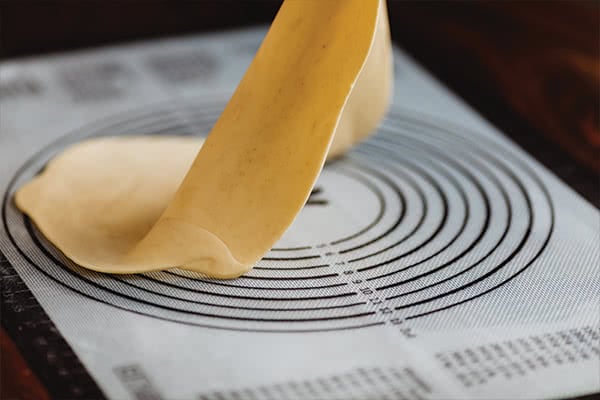Fertilizer Off-season, Why Does Compound Fertilizer Companies Contrary to Price Rise?
In recent months, an unusual trend has emerged in the fertilizer market: as soon as the peak sales season ends, domestic compound fertilizer sales have hit record highs. Some companies have even raised their prices by around RMB 100 per ton compared to the previous selling period, with some reaching over RMB 200 per ton higher. Many firms are still planning to increase their prices further in the near future. But why would a compound fertilizer company raise its prices when demand typically drops after the season?
Henan Xinlianxin Fertilizer Co., Ltd., the first domestic fertilizer company listed in Singapore, explained that the price hikes are not driven by profit motives but rather by necessity. According to Zhu Cuiping, the deputy general manager of the company, the urea market has changed significantly this year, and the cost of phosphate and potash fertilizers has risen sharply. If they don’t increase their ex-factory prices, they would have to absorb the rising costs themselves. As a result, Xinlianxin raised its compound fertilizer prices by an average of RMB 80 per ton within just two months.
A mid-sized compound fertilizer company in Jiangsu shared similar concerns. The general manager noted that potassium prices in Russia have surged, with red-potassium reaching as high as 2,100 yuan per ton and white-potassium hitting 2,200 yuan per ton. In just six months, the price has increased by nearly 300 yuan per ton, and actual transaction prices have also risen by over 200 yuan per ton. He described the situation as “crying without tears,†expressing frustration over the unmanageable rise in raw material costs.
On June 1st, the Chinese government introduced a tax on the export of diammonium phosphate (DAP). In the past two months, DAP prices have shown a clear upward trend. Wang Xiyi, vice president of Anhui Six Kingdoms Chemicals, believes that this tax has pushed some companies to switch to monoammonium phosphate (MAP) as a substitute. Since MAP is not taxed, its export volume has increased, leading to higher prices for both the substitute and the original product.
Meanwhile, the domestic sulfur market has faced tight supply conditions, causing prices to soar. Several large compound fertilizer plants have seen sulfur prices jump by hundreds of yuan per ton. Yang Huafeng, deputy general manager of Hubei Yangfeng Co., Ltd., mentioned that sulfur purchases via L/C have been subject to multiple price increases from suppliers. Sulfur prices for August and September are expected to exceed 1,800 yuan per ton, and some companies have already paid over 1,900 yuan per ton. One Shandong-based compound fertilizer producer joked that if this continues, they may lose even their family’s savings. Due to rising costs, they had no choice but to increase compound fertilizer prices by an average of 150 yuan per ton.
Another Hubei factory CEO stated that the cost of sulfur-based compound fertilizers has gone up by 250 yuan per ton compared to before the sulfur price hike. Without increasing prices, the factory would be forced to shut down. A sales manager from another manufacturer admitted that whether they raise prices or not, they are facing losses—either way, it's a tough decision.
Looking at the downstream market, distributors are also feeling the pressure. Sales volumes that used to run into hundreds or thousands of tons now seem rare. Tong Fuhua, CEO of Jiangsu Hai'an Agricultural Materials' branch, said that farmers are now applying only half a bag per mu instead of one, due to the high cost of fertilizers. Grassroots dealers are also uneasy about the price adjustments. Some are hesitant to prepay orders because the repayment period can stretch up to six months, limiting their liquidity. Others are waiting for prices to rise further before selling, but this strategy comes with greater sales risks.
Industry experts warn that if the price increases go beyond what farmers and distributors can afford, the balance of the compound fertilizer market could be disrupted. The current situation reflects a complex interplay of rising input costs, policy changes, and market dynamics, leaving all players in a difficult position.

Liquid Silicone Rubber Coating

Liquid silicone rubber coating
Liquid silicone rubber coating is a high-performance protective material that offers exceptional durability and flexibility. It maintains excellent temperature resistance and chemical stability in harsh environments, effectively preventing corrosion and wear. This coating is clear and smooth, making it suitable for applications that require both aesthetics and protection, such as electronic products, automotive parts, medical devices, and consumer goods.Additionally, Liquid Silicone Rubber Coating is easy to process and can be applied through spraying, brushing, or dipping methods, with rapid curing properties that enhance production efficiency. Its non-toxic and environmentally friendly characteristics make it safe for food contact and medical applications. Overall, Liquid Silicone Rubber Coating is an ideal protective material that meets the high-performance and reliability demands across various industries.
Sturdiness,Flexibility,Temperature Resistance, self-levelling capabilities.Electrical Insulation
Ninja Silicone , https://www.ninjasilicone.com
